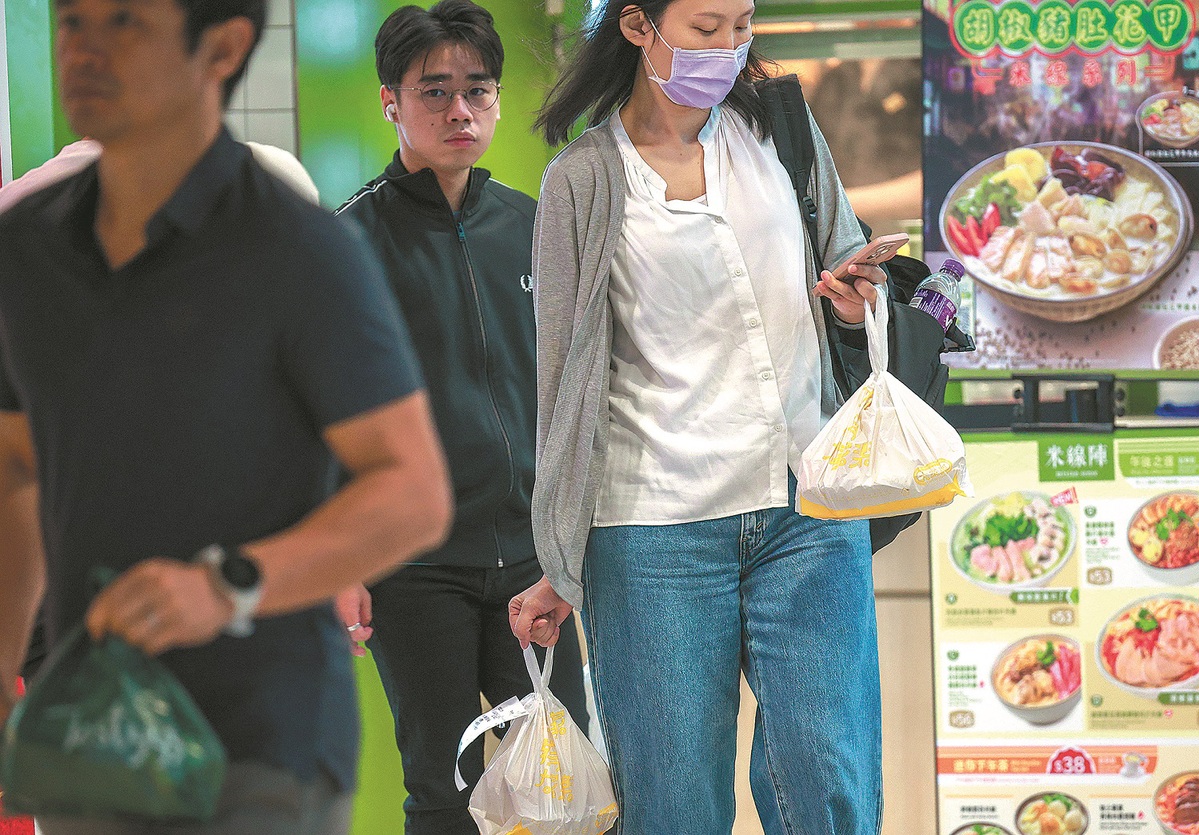HK plastics ban receives mixed response


The Hong Kong Special Administrative Region kicked off the first stage of its single-use plastics ban on Monday, starting a six-month buffer period with no harsh enforcement to give the community time to learn the new regulations.
Restaurants are banned from offering nine types of products made of expanded polystyrene — a nonbiodegradable material — such as cutlery, straws, plates, cups and lids, as well as food containers.
Retailers are also prohibited from selling cotton buds with plastic parts, umbrella bags and many other single-use plastic products. Plastic-handled toothbrushes and combs, shower supplies packed in plastic containers, and free plastic bottles of water are no longer available in hotel rooms.
Wong Gwan, a resident in her 50s living in Aberdeen, expressed her support for the regulation as she ate at a fried chicken restaurant. However, she called for an alternative for single-use plastic gloves to keep people from getting their hands greasy.
"Today I used more tissues to wipe my hands, which is even less environmentally friendly," she said.
Wong also said that the wooden spoons were too flat to ladle soups, and paper cutlery softened when in liquids for a long time. She hoped the quality of tableware would improve.
Another resident, surnamed Lan, said he usually does not ask for plastic cutlery when buying takeout food, and thinks the new regulation will have little impact on him.
The owner of a shop selling roast goose said he bought some paper lunchboxes for takeout, but found purchasing alternate tableware a bit inconvenient as he needed to reach out to new suppliers. The cost had also increased slightly, he added.
He suggested the government extend the buffer period so that restaurant owners can have more time for procurement.
Simon Wong Ka-wo, president of the Hong Kong Federation of Restaurants and Related Trades, told a radio program on Monday that about 30 percent of the city's 18,000 restaurants have switched to recyclable tableware, but many small and medium-sized restaurants have not due to increased costs. He predicts that when purchase volume increases, the price of environmentally friendly tableware will decrease.
Timothy Chui Ting-pong, executive director of the Hong Kong Tourism Association, said in the same program that the hotel industry has provided wooden-handled toothbrushes and paper-packaged toothpaste in accordance with the new regulations.
However, he said it is still difficult for the industry to find substitutes for shower caps and razors and he called for the government to help contact suppliers.
Hong Kong's Environmental Protection Department reiterated on Monday that it would not take enforcement action against noncompliant businesses during the buffer period. The department added that green tableware materials include pulp, wood and bamboo, and restaurants and eateries can choose suitable materials.
fangxue@chinadailyhk.com





































